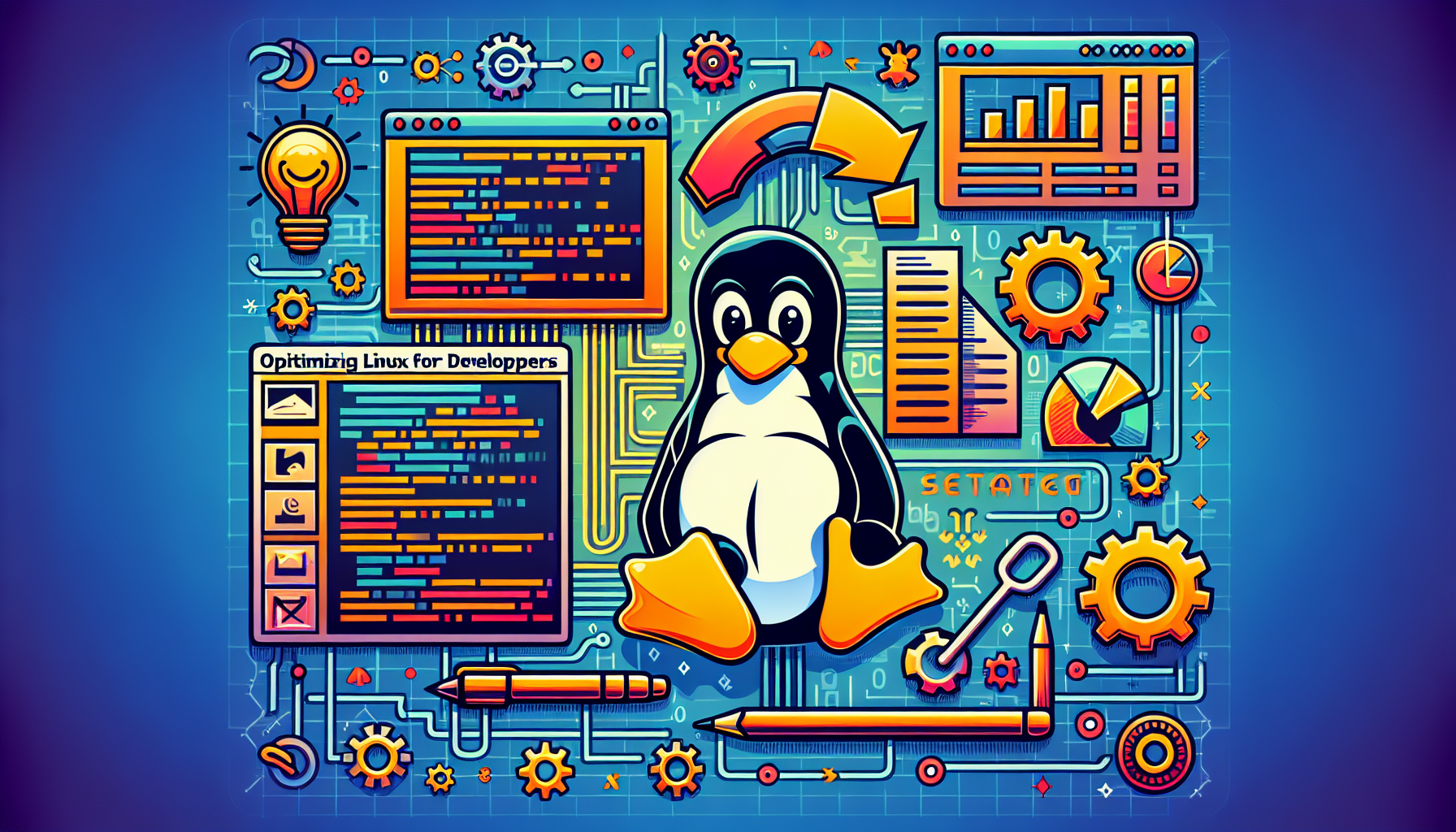Optimizing Linux for Developers: Tools and Strategies for Enhancing Productivity in Software Development
Linux is a highly versatile operating system beloved by developers for its robustness, security, and extensive customizability. However, out-of-the-box Linux distributions may not be fully optimized for the specific needs of software developers. This blog post will explore various tools and strategies to tweak Linux environments, thereby boosting productivity and efficiency in software development tasks.
Tooling
Terminal Enhancements
- tmux: Tmux enhances terminal usage by allowing multiple sessions and resilient, long-running processes.
sudo apt install tmux
- fish or zsh: These are advanced shells that offer features like syntax highlighting and auto-suggestions.
sudo apt install fish
Development Environments and IDEs
- Visual Studio Code: A lightweight, yet powerful IDE that supports a multitude of programming languages and platforms.
sudo snap install code --classic
- JetBrains Tool Suite: Products like IntelliJ IDEA for Java, PyCharm for Python, and others offer specialized IDEs, enhancing coding efficiency.
Utilities
- Docker: Facilitates consistent environments via containers, crucial for developing and deploying applications consistently.
sudo apt install docker.io
- Git: Essential for version control and managing code updates in team settings.
sudo apt install git
Performance Tuning
Managing System Resources
CPU and Memory
- htop: An interactive process viewer, better than ‘top’, which provides a detailed view of CPU and memory usage.
sudo apt install htop
Disk Usage
- ncdu: A disk usage analyzer with an ncurses interface, helping developers understand where space is being used.
sudo apt install ncdu
Swappiness
Reducing the swappiness value can prevent the system from using the swap file too often, which is beneficial for performance.
sudo sysctl vm.swappiness=10
Customization
Bash Aliases
Creating aliases for frequently used commands saves time. Add these to your .bashrc or .zshrc file:
alias gs='git status'
```.
### Scheduled Tasks
Using cron jobs to automate routine tasks like backups or nightly builds:
```bash
crontab -e
Conclusion
Optimizing your Linux environment involves understanding both the tools at your disposal and the ways to configure them effectively. By tailoring your workspace, adopting performance-enhancing practices, and utilizing powerful development tools, you can significantly increase productivity. As developers themselves drive much of Linux’s innovation, the possibilities for system refinement are both vast and exciting.




